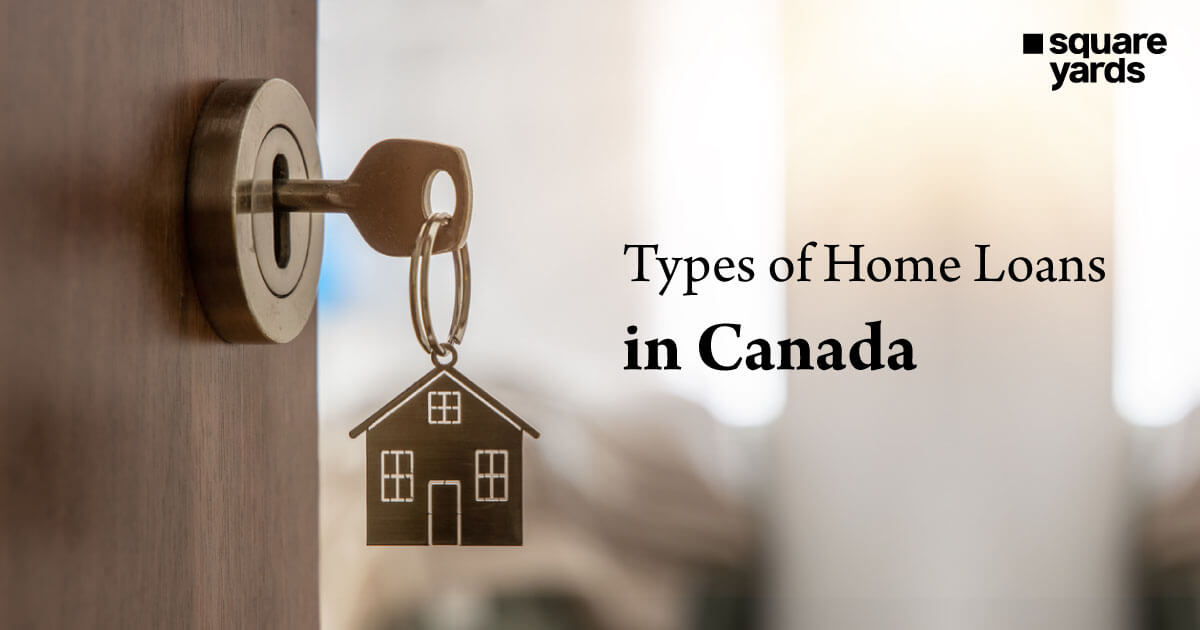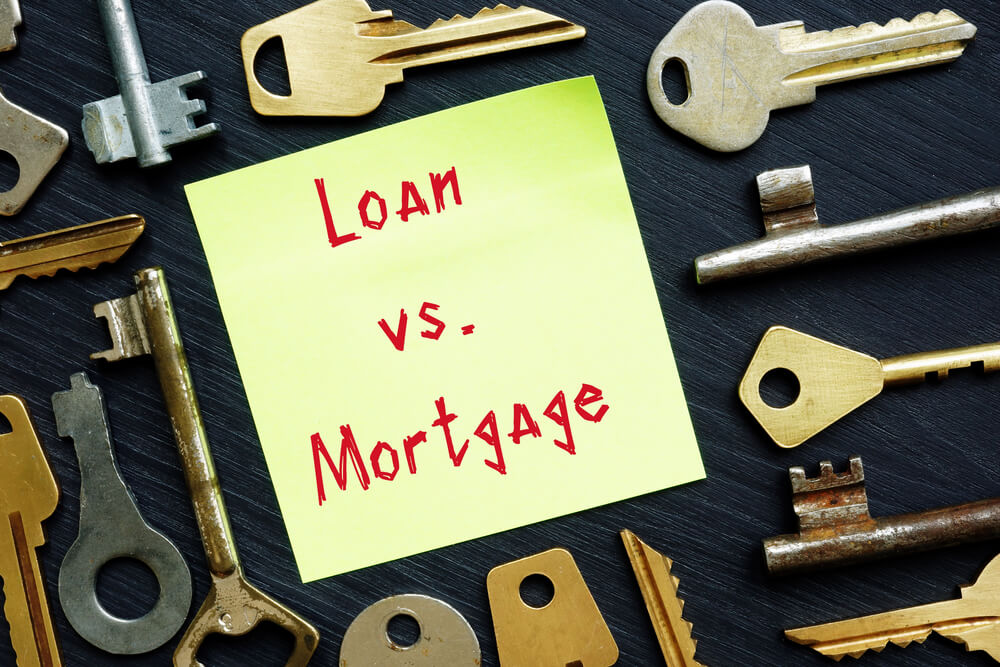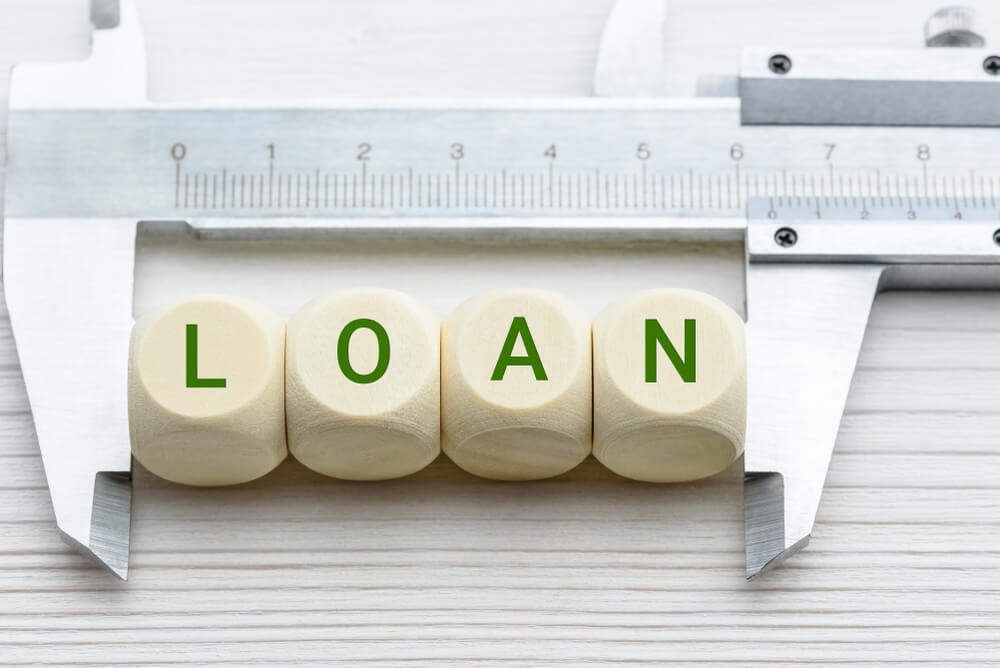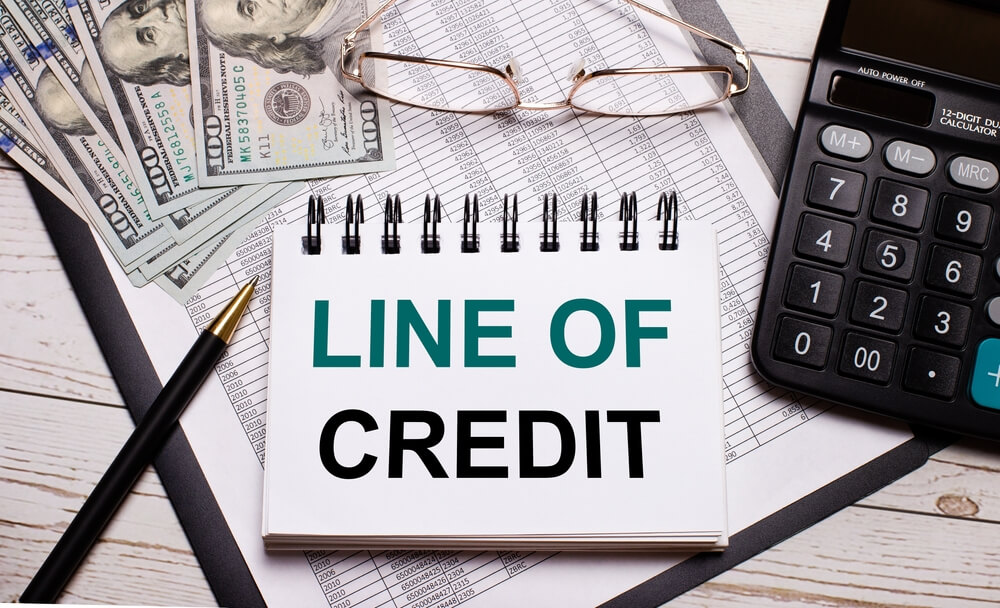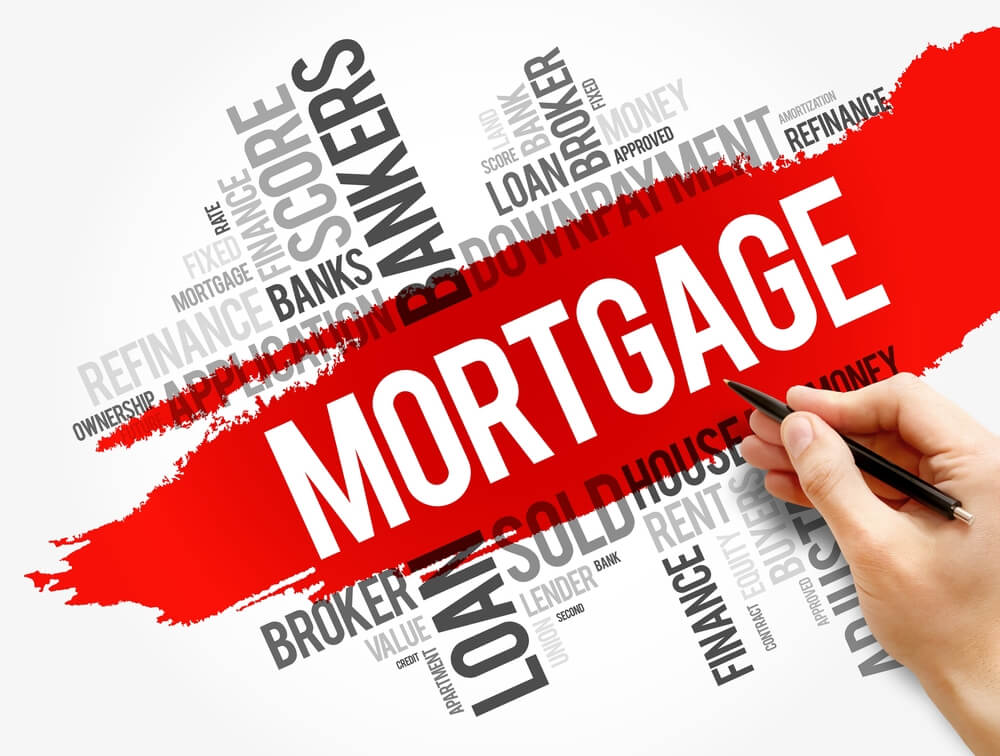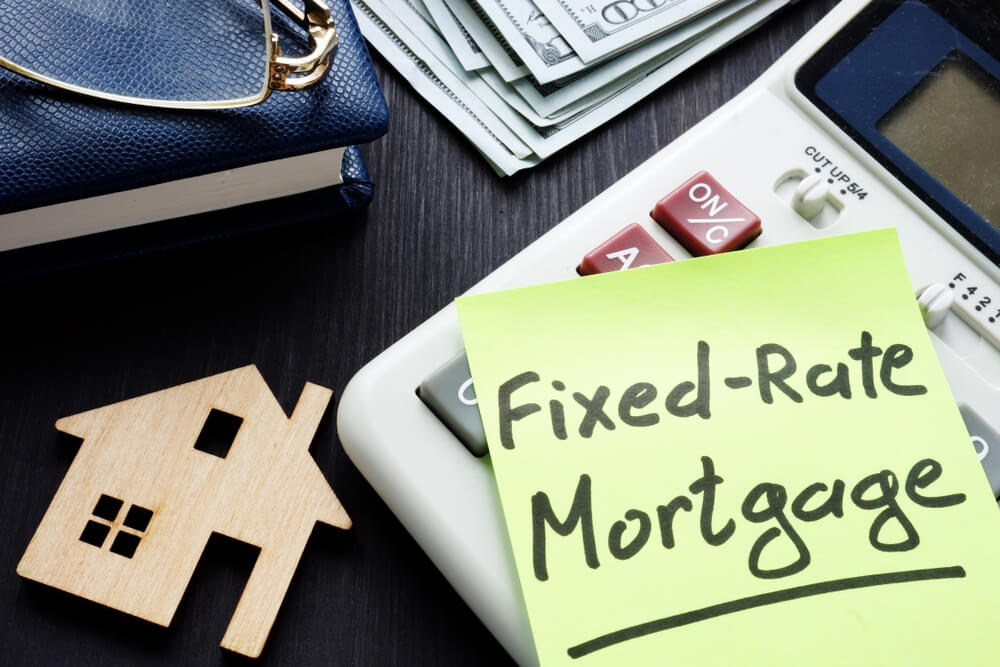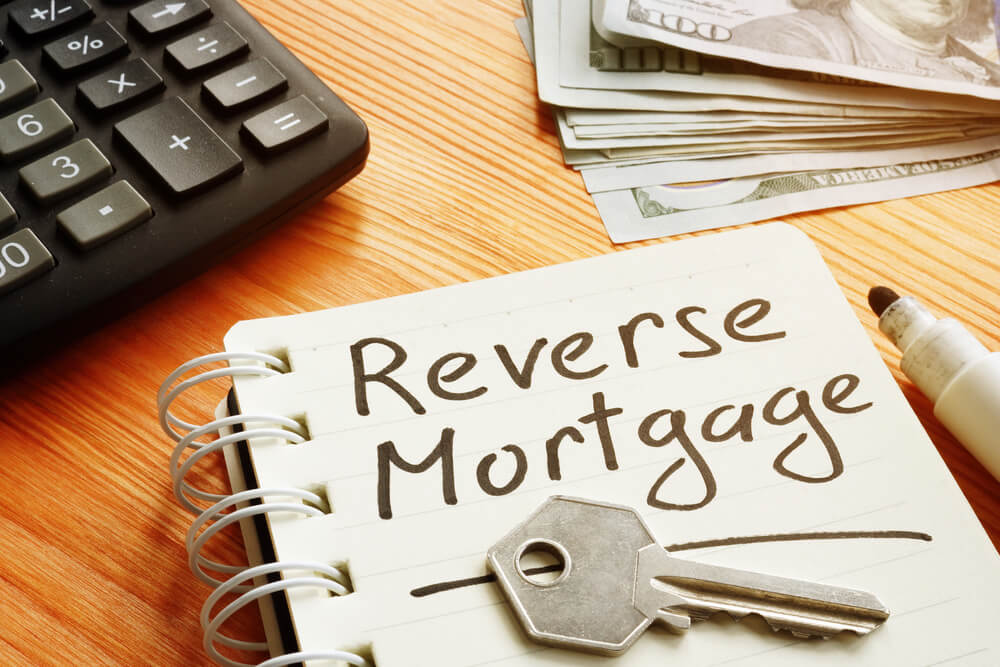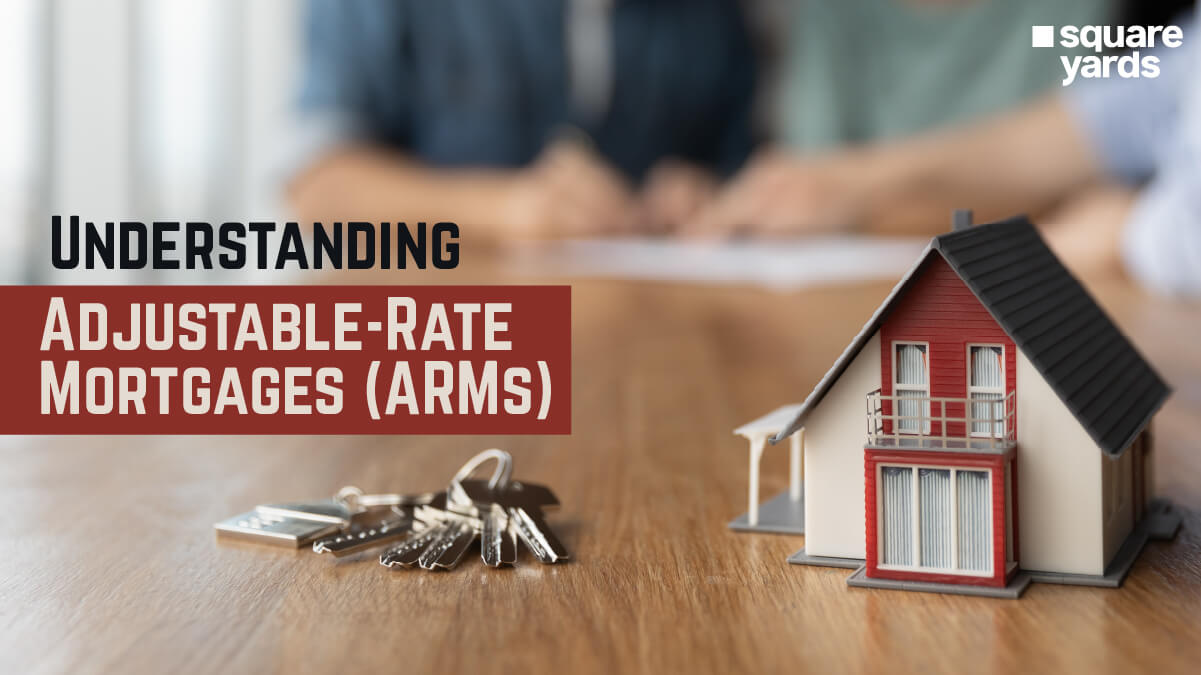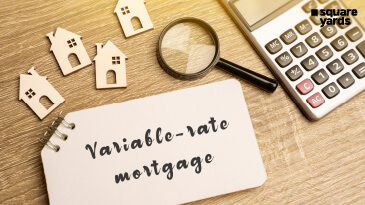Canada is a haven of endless possibilities. Whether you want to pursue higher education or establish a new business, the country’s smooth legal procedures help you do that seamlessly. Canada is applauded for its swift and flexible loan and mortgage schemes, and we’re here to help you understand what kinds of secured and unsecured loans or mortgages are best for you. Unlike in other parts of the world, taking a Different types of loans in Canada is comparatively less arduous.
So, if you have wanted to apply for a loan in Canada, this article will help you. As you read ahead, you’ll understand every technical aspect of the different types of loans in Canada. Bonus point- In this article, we’ll also discuss the various kinds of collateral mortgage loans available in the country. So stay hooked!
But first off, let us understand what the difference between a loan and a mortgage is.
Mortgage vs Loan – The Main Difference
“Loan” and “mortgage” are two financial terms often used interchangeably, but that would be incorrect. So before we move ahead, let us understand the main difference that makes a loan and a mortgage contrast with one another. A secured or unsecured loan is an amount you borrow from a bank or financial institution against some collateral security. But in the case of a mortgage or a collateral mortgage, you must provide an immovable, fixed asset as collateral to be eligible to acquire the loan.
Different Types Of Loans In Canada
Now that we have the basics in place, let’s take a deep dive and learn about the different types of loans in Canada that you can apply for:
-
Secured Loan
Secured loans are for you if you think you’re not eligible for a loan anymore because of your credit history. Particularly offered to people with unstable credit scores, the only catch with secured loans is that you will have to pledge some asset, generally your house or car, as collateral security to the lender. However, such loans are offered at lower interest rates and can be used for both business and personal purposes. Also, a secured loan has to be paid back within a stipulated period. So go for this loan only if you’re financially disciplined.
-
Unsecured Loan
Just the opposite of the former, unsecured loans do not require the borrower to provide collateral security, as they are offered only to individuals with a clean credit history. Alternatively, these loans come tagged with a higher interest rate (because of the absence of collateral security). You need to show your income statement to qualify for such a loan. You’ll only be considered eligible for an unsecured loan if you prove that your income is steady and you’ve not defaulted on a loan in the past.
-
Student Loan
Student loans are one of the most popular types of loans in Canada, but they are only for students who need financial aid to pursue further education. Naturally, as these loans are offered to only students who are enrolled in an institution or have just graduated, they do not need any collateral security. Student loans in Canada are fully interest-free and require no credit score assessment either. But that doesn’t mean you don’t have to repay the principal loan once your education is completed.
-
Citizenship Loan
Thousands of immigrants come to Canada every year, looking to acquire legal citizenship status here. Citizenship loans help them fulfil this purpose. This short-term loan doesn’t carry any interest rate but must be paid back in full. However, that’s hardly ever a problem, as citizenship loan amounts are small enough to help you cover every expense you incur in acquiring Canadian citizenship. Generally, it’s not necessary to have a good credit score to qualify for this loan. But the authorities might want to peep into your credit history before approving your loan request.
-
Payday Loan
A payday loan is a loan you take from a financial institution or a recognised payday loan company in Canada when your paycheck doesn’t arrive on time. You can borrow up to $1500, and you have to pay back the entire amount once your salary comes in. In case it doesn’t, you also have the option to keep taking such loans until your paycheck finally arrives. But one downside to this loan is that it carries a higher interest rate. So you’ll want to pay back the loan amount as quickly as possible.
-
Line of Credit Loan
If you want a short-term loan to pay off your expenses, a line of credit loan is what you should go for. Such loans are available at a low rate of interest. Like a bank overdraft, you can take out the amount you wish and keep paying interest on it until you repay the whole amount. But an individual’s credit score is seriously considered before approving the loan. This means that not everyone is eligible to acquire a line of credit loan.
Different Types Of Mortgages In Canada
In Canada, a mortgage loan is typically taken for buying a house. In order to acquire the loan, you need to pledge an immovable asset (mainly land) as a mortgage to the lender. In most cases, you also need to pay a certain amount of down payment towards the cost of your house. So, the mortgage loan amount is the difference between the price of the house and the down payment made by you. Like other types of loans, mortgage loans also come with a rate of interest and need to be paid back in full to the lender.
Here are the kinds of collateral mortgage loans available in Canada:
-
Open Mortgage
If you don’t want the burden of the mortgage to hover over your head for a long time, choose the open mortgage scheme. Through this scheme, you’ll be able to make lump sum payments toward your loan amount without any penalties whatsoever. Although the interest rates fluctuate and are generally higher, this kind of mortgage is extremely flexible.
-
Closed Mortgage
A closed mortgage is a mortgage scheme where the key aspects of the loan, like interest rates and payback period, are predetermined by a mutual agreement between the borrower and the lender. So, if the borrower pays off the entire amount before the stipulated time, they have to face a penalty. However, the interest rate on such mortgages is low and can be fixed or variable as per the borrower’s preference.
-
Convertible Mortgage
As the name suggests, convertible mortgages can be converted into a different type of mortgage during their term. In the case of such mortgages, both borrowers and lenders have the right to start with a particular mortgage scheme and switch to another. Biggest pro? Besides being highly flexible, convertible mortgages are available at temptingly low-interest rates.
-
Hybrid Mortgage
A hybrid mortgage model is one where more than one kind of mortgage falls under one registration. This implies that such mortgages contain different elements, like fixed rates, variable rates, etc., all under one scheme. In fact, each lender is allocated a unique name, and this mortgage can contain up to 100 additional product registrations at once.
-
Fixed Rate Mortgage
If you are going for a fixed-rate mortgage, your interest rate will remain constant during the entire term – number of payments will be made every month.
-
Adjustable Rate Mortgage
An adjustable or variable rate mortgage implies your interest rate will keep fluctuating as per the current prime interest rate. However, even though the interest rates keep changing, your monthly payment amount will remain the same. That’s because the difference is adjusted with the monthly amount of principal payable.
-
Reverse Mortgage Loan
A reverse mortgage loan is typically for senior citizens living in Canada. Through this, homeowners aged 55 or more are allowed to turn their houses’ equity into monthly payments to supplement regular income.
Conclusion
With many options available, acquiring a loan or a mortgage in Canada is easy and flexible. You can choose the type of loan that suits your financial situation and needs, keeping in mind the payback rates. We hope this article helped you get familiar with Canada’s most prevalent loan and mortgage schemes and allowed you to pick the best one.
You May Also Read
| Real Estate Mortgage Process | Commercial Real Estate Loan |
| Personal loan in Canada | Small Business Loan in Canada |
Frequently Asked Question (FAQs)
What amount I can get as a personal loan in Canada?
Personal loans are taken for a few specific reasons, like home renovations, furniture, cars, and other debts with higher interest rates. The amount varies from $100 to $50,000 with a tenure of 6 months to 5 years.
How to legally borrow money in Canada?
You can legally borrow money in Canada by signing a contract with a third lender or from a bank.
Are loans taxable in Canada?
The interest rate you pay for a loan is a taxable gain for the lender.
Who are eligible for a personal loan in Canada?
The age must be more than 18 as per your residential province, must be a Canadian resident, required personal details, gross annual income, and good credit score are some of the eligibility criteria to apply for a personal loan in Canada.
What is the line of credit loan in Canada?
A line of credit is a loan type that allows you to borrow money up to a pre-set limit. With this type of loan, you don't have to use the funds for a specific purpose. It's up to you whether you want to use a small number of funds and to a certain maxim only. And, you can pay back the amount you owe at any time.

